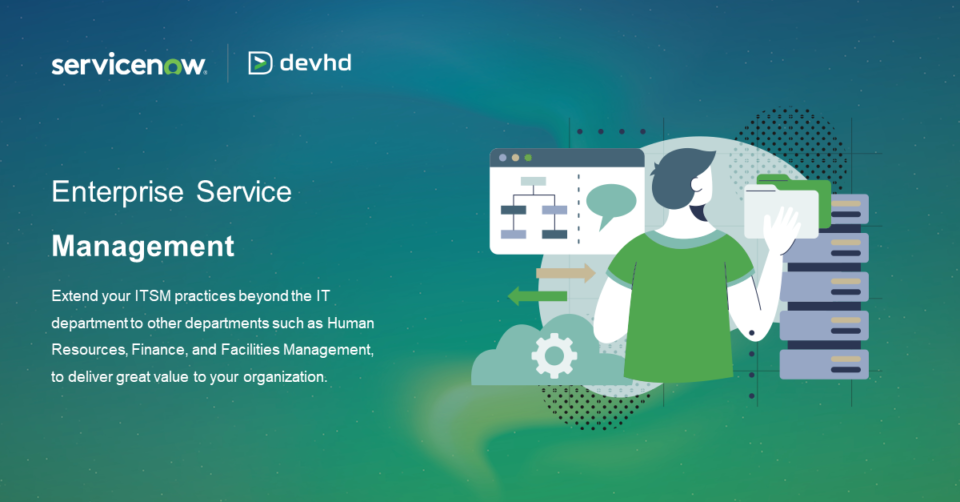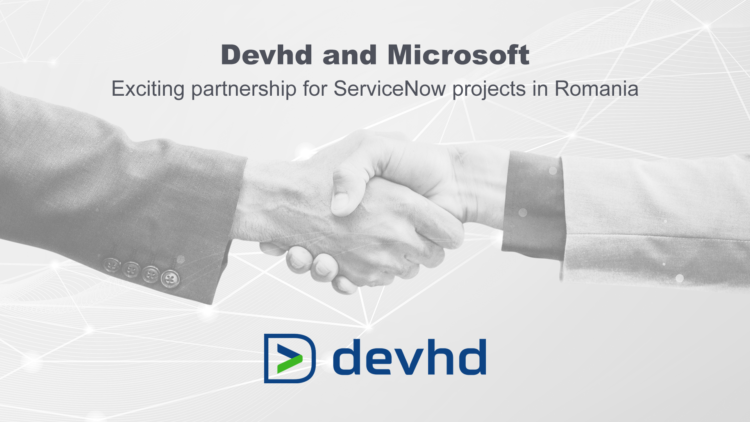Enterprise Service Management (ESM) is a strategic approach that extends the principles and practices of IT Service Management (ITSM) beyond the IT department to other departments within an organization, such as Human Resources, Finance, and Facilities Management. ESM aims to improve efficiency, streamline service delivery, and enhance overall customer satisfaction by applying a unified service management framework across the entire organization.
This approach leverages technology and best practices developed in ITSM, like service catalogs and incident management, to standardize and automate processes in various departments. By doing so, ESM facilitates better interdepartmental communication, fosters a culture of collaboration, and drives organizational agility and innovation.
The history of enterprise service management
The history of Enterprise Service Management (ESM) can be outlined in the following key points:
- Origins in Service Fields: Services in various forms, such as legal, transportation, cleaning, and government services, have been around for centuries. These services have long utilized the concept of leveraging additional resources for specialized tasks.
- Emergence of IT Services: Information Technology (IT) services, in contrast, have a much shorter history. The term “information technology” was first used in 1978, marking the differentiation of IT jobs from traditional computing roles. This era saw the application of computing to business processes, necessitating specialists to develop, adapt, and maintain hardware and software for business support.
- Formalization with ITIL: The IT Service Desk received formal recognition with the advent of the Information Technology Infrastructure Library (ITIL) guidelines at the end of the 1980s. ITIL led to the rise of IT Service Management (ITSM), establishing best practices for the types of services provided by IT departments.
- Evolution into ESM: Over the years, ITSM evolved into a more general category of “service management,” applying its principles beyond IT to other departments and areas. This broader application of service management principles proved valuable in managing data and resources adaptable to various parts of an organization.
- Realization and Integration of ESM: Enterprise Service Management, as known today, emerged at the intersection where employees, customers, and managers realized the benefits of service management for the company and its service delivery. The integration of Enterprise Application Integration (EAI) with service management marked a significant advancement in this field.
These points highlight the transition from specialized IT services to a more inclusive approach in service management, leading to the current state of ESM.
Like many information technology initiatives, enterprise service management gained higher popularity during the COVID-19 crisis. When employees started to work from home, thanks to ESM, companies could quickly restore access to services that were previously provided offline.
ITSM versus ESM
ITSM and ESM are two closely related disciplines.
ITSM is a collection of processes and policies that enable organizations to design, implement, manage, and improve customer IT services. By IT services, we mean all the valuable tasks that the IT department fulfills for the rest of the company, starting from password reset to migrating data to the cloud. The most popular ITSM framework is ITIL–the information technology infrastructure library.
ESM strives to adapt the best from ITSM to the service delivery practices in other business units.
How does digitalization help with enterprise service management?
Digitalization significantly enhances Enterprise Service Management (ESM) in several ways:
- Automation of Processes: Digital tools automate routine tasks across various departments, reducing manual effort and minimizing errors. This leads to more efficient service delivery.
- Improved Data Management: Digitalization enables better data collection, storage, and analysis. With comprehensive data analytics, organizations can make informed decisions and identify areas for improvement in their services.
- Enhanced Customer Experience: Digital platforms provide more accessible and user-friendly interfaces for internal and external customers, improving their experience and satisfaction.
- Integration of Services: Digitalization allows for the integration of various departmental services into a single, unified platform, facilitating easier access to services and information for employees.
- Scalability and Flexibility: Digital solutions offer scalability and flexibility, allowing organizations to easily adapt to changing needs and scale their services up or down as required.
- Real-Time Monitoring and Reporting: Digital tools enable real-time monitoring of services and instant reporting, helping in the quick resolution of issues and continuous service improvement.
- Cost Reduction: By streamlining processes and reducing the need for manual interventions, digitalization can lead to significant cost savings.
- Supports Remote Work: In today's increasingly remote work environment, digital ESM tools ensure that employees can access services and support regardless of their location.
Digitalization in ESM leads to more efficient, scalable, and user-friendly service management, driving overall organizational efficiency and effectiveness.
Advantages of ServiceNow for enterprise service management?
ServiceNow, a leading platform for enterprise service management (ESM), offers several advantages that make it a popular choice for organizations looking to streamline their service management processes. Here are some key benefits:
- Unified Platform: ServiceNow provides a single, integrated platform for managing all enterprise services, including IT, HR, facilities, and more. This centralization simplifies service management and improves user experience.
- Customization and Flexibility: The platform is highly customizable, allowing organizations to tailor it to their specific needs. This flexibility ensures that it can adapt to various business processes and requirements.
- Automation of Workflow: ServiceNow automates complex workflows, reducing manual effort and increasing efficiency. Automation helps in faster resolution of issues and streamlines service delivery across departments.
- Improved Efficiency and Productivity: By automating routine tasks and integrating various service management functions, ServiceNow enhances overall operational efficiency and employee productivity.
- Data Analysis and Reporting: ServiceNow offers robust data analytics and reporting features, enabling organizations to gain insights into their operations, identify bottlenecks, and make data-driven decisions.
- Enhanced User Experience: The platform provides a user-friendly interface and self-service portals, making it easier for employees to request services and find information, which enhances overall user satisfaction.
- Scalability: ServiceNow is designed to scale with the growth of an organization, supporting an increasing number of users and services without compromising performance.
- Compliance and Security: The platform includes features that help maintain compliance with various regulations and standards. It also offers robust security features to protect sensitive data.
- Integration Capabilities: ServiceNow can integrate with various existing systems and applications within an organization, ensuring seamless data flow and service management across different platforms.
- Cloud-Based Solution: Being a cloud-based platform, ServiceNow ensures availability and accessibility from anywhere, which is essential for supporting remote and distributed workforces.
In essence, ServiceNow enhances the efficiency and effectiveness of enterprise service management through automation, integration, customization, and a focus on user experience.
How to digitize your enterprise service management?
Digitizing your enterprise service management involves several key steps:
- Assess Current Processes: Understand your current service management processes across departments. Identify areas that need improvement or could benefit from digitalization.
- Set Clear Objectives: Define clear goals for what you want to achieve with digitalization, such as improved efficiency, better customer experience, or cost reduction.
- Choose the Right Tools: Select digital tools and platforms that align with your objectives. Consider platforms like ServiceNow, which offer comprehensive solutions for enterprise service management.
- Integrate Systems: Ensure that your chosen digital tools can integrate with existing systems to allow seamless data flow and service management.
- Train Your Team: Train employees on the new digital tools and processes. Effective training ensures a smoother transition and better adoption of the new system.
- Implement in Phases: Roll out the digitalization in phases. Start with one department or process, evaluate the outcomes, and then expand to others.
- Monitor and Adapt: Continuously monitor the performance of the digitalized processes. Be ready to adapt and make changes based on feedback and evolving business needs.
- Ensure Data Security: Prioritize data security and compliance, especially when handling sensitive employee and customer data.
- Foster a Digital Culture: Encourage a culture that embraces digital transformation. This includes promoting digital literacy and a mindset open to change and innovation.
- Evaluate and Improve: Regularly evaluate the impact of digitalization on your service management and make improvements as necessary. This helps in keeping the digital transformation aligned with business goals.
Enterprise service management techniques
Enterprise Service Management (ESM) encompasses a variety of techniques aimed at improving service delivery and management across an organization. These techniques are often derived from IT Service Management (ITSM) principles but are applied more broadly. Here are some key ESM techniques:
- Service Catalog Management: Developing a comprehensive service catalog that lists all available services, making it easy for users to find and request the services they need.
- Incident Management: Implementing processes for quickly and efficiently resolving service disruptions or incidents, ensuring minimal impact on business operations.
- Problem Management: Identifying and addressing the root causes of incidents to prevent future occurrences.
- Change Management: Managing changes to services or processes in a controlled manner to minimize risk and disruption.
- Request Fulfillment: Streamlining the process of handling service requests, from simple user queries to complex service provisions.
- Service Level Management: Establishing and maintaining service levels to ensure that services are delivered in line with agreed-upon standards and expectations.
- Knowledge Management: Creating, sharing, using, and managing the knowledge and information within the organization to improve decision-making and service delivery.
- Configuration Management: Maintaining information about configuration items required to deliver services, including their relationships.
- Asset Management: Managing IT and non-IT assets to ensure they are properly utilized and maintained throughout their lifecycle.
- Continuous Improvement: Regularly reviewing and improving services and processes based on feedback and performance data.
- User Experience Design: Focusing on the user experience to ensure that services are intuitive, accessible, and meet user needs.
- Workflow Automation: Automating routine tasks and workflows to improve efficiency and reduce manual errors.
Enterprise Service Management (ESM) represents a transformative approach that extends the disciplined, efficient methodologies of IT Service Management to various other departments within an organization.
By leveraging technology, particularly digitalization, ESM streamlines processes, enhances customer and employee experiences, and fosters a more collaborative and efficient organizational culture. The integration of platforms like ServiceNow further empowers this transformation, offering comprehensive, customizable solutions. As organizations continue to adapt to a rapidly changing business environment, ESM stands as a pivotal strategy for achieving greater operational agility, efficiency, and sustained business growth.
Having explored the transformative potential of Enterprise Service Management and the advantages offered by ServiceNow, you might be eager to learn more. Want to discover how ServiceNow ESM can streamline service delivery throughout your organization? Reach out to us at contact@dev-hd.com.






